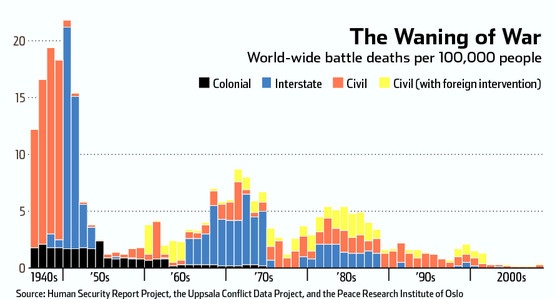Being Good vs. Doing Good
- Emile Rposted 10 years ago
0
Do you think doing what is perceived as good by society, without understanding how and why it is good,to the extent that the act itself feels good when done; constitutes virtue?
Ignore the glaring obvious. I suppose there are those among us who don't murder and steal simply because the benefits of not doing so out weigh the drawbacks.
But, if common courtesy is extended so begrudgingly that the recipient is aware that the one who gives it would rather not; if help is extended while simultaneously judging the one in need in a negative manner; if you feel compelled toward a charitable act yet become miserly as you reach into your wallet; if you are in a position to do good but you only do it because of how you think you will be perceived...examples like those; do you think the acts are ultimately good?
I suppose it is more beneficial to society to do good without understanding and embracing why it is good but do you think the good done has a positive or negative impact on the individual performing the act? Do you think if someone acts out of a sense of obligation, once repeated enough, the reason for doing so will eventually dawn? Do you think the negative will be reinforced through repetition? Or do you think it matters at all what motivates one to do what is perceived as good, so long as others benefit?I love this topic, well done. As usual, a verse pops into my head that seems to address your post.
Mt 6:21
"Be careful not to practice your righteousness in front of others to be seen by them. If you do, you will have no reward from your Father in heaven."
I know ppl's first argument is that helping ppl only to "earn points" with God isn't a loving thing, but of course God addresses that too in I Cor 13 with "the Love Chapter" when he says basically if you do anything without the motive of love, it was a meaningless act.I didn't mean to ignore your response. I think the crux of my problem is showcased by the atheist responses here. Results appear to be all that matter, in their opinion. Which explains why many appear to do 'the right thing' with so little warmth or compassion. It appears there is no depth of understanding.
There are no atheist responses to your posts, none. They are just responses regarding the OP. Notice how you once again say things that aren't even there when you attempt to defend yourself?
No, that would be your opinion.
That would be your lack of understanding, not ours.
Make up your mind. Are there atheist responses, or not? If not, who are you referencing when you say our?
Either way sorry you don't understand what I am talking about. The truth of the matter is that those who have responded who have made it clear that they are atheist in other places within this forum appear to think that motivation doesn't matter, as long as the act is perceived by society as beneficial. I don't believe that it is necessarily beneficial to the individual to act in a manner that is perceived as good if they don't understand why their actions are good, or if they act in a manner that is perceived as good, begrudgingly, solely because they have learned what society considers good and they want to be seen in that manner; without understanding why the actions are labeled that way.Uh, I thought I did make up my mind when I said there were no atheist responses. Did you miss that?
I don't think you know what you're talking about, either.
Oh, I see, you are fallaciously correlating the responses of others in other threads that have nothing to do with this thread only because they said they were atheists.No. I don't consider it fallacious, at all. But, we will not come to an agreement on this (any more than we agree on most anything) so I'll leave you to think what you want.

Why are some behaviors perceived as "good" and "bad" in the first place? Is being courteous good? If so why is it? I'm not suggesting it's not, just trying to find out what your morality is based on. Are you a Christian?
I get why you ask. But, i think the question would hold for any series of examples of someone's idea of what constitutes good vs bad. Good being what the individual believes the social group they function within believes is good.
Are we 'good' or virtuous if we act against our nature in order to maintain a facade? I always wonder about the balance. Nothing is all good, or bad.
If my nature were selfish, yet I knew what society perceived as selfless. Then went through the motions in order to mimic behavior patterns I felt warranted the label of selflessness without truly embracing the idea; what have I accomplished? Would I be selfless? Who are each of us, ultimately?
In the final analysis, do our thoughts or our actions define us, as individuals? I think who we internally know ourselves to be defines us. So, I would think acting one way, while our thoughts ran contradictory to our actions, would be very detrimental psychologically. I would think the inner turmoil associated would drain the individual as long as they lacked the understanding necessary as to why those actions are labeled good. Which makes me wonder about the balance.
As Disappearing Head commented. Altruistic actions make one feel good. I think because we internally agree that the actions are good. If we don't understand, or agree, so don't feel good about the actions; are they good? Have they been beneficial to the development of the individual?
Altruism is a function of evolution, particularly in social animals like humans and other great apes. When one does good things, it elevates their status in the group and often comes with a reward of some sort. The result is a society that sticks closer together and, thus, has a greater chance of having viable offspring come about, and that's what evolution is all about--picking and choosing the best traits to pass on that increase your chances of surviving and making babies (though not necessarily in that order).
The extent of self-awareness you have about your altruism is really irrelevant.Judging by the evidence of the last 100 years of mostly constant violence taking place somewhere on earth, as predicted, I would assess that humanity is devolving rather than evolving, but then maybe in a fallen world we should expect that?
The act of assisting others without judgement only seems to take place once someone has realised that they themselves are or have been just as much in need as the person who they are helping.
In an ideal world, humanity would realise that the objective is selflessness, and that if all were selfless, nobody would want for anything.There is a lot of violence today, yes, but when you look at historical data, we pale in comparison to our ancestors. Even our grandparents were downright bloodthirsty:

We do kill on a larger scale now. Maybe, we simply sate our appetites for violence with larger, yet less numerous, wars and violence.
That's not number of wars--that's the number of people killed in wars. And you can find that domestic homicide rates follow a similar (albeit more fluctuating) pattern. For example, here's the U.S., historically one of the more violence-prone industrialized countries:

Funnily enough, 1994 was the year that violent video games really started to flood the market, and just look at that sharp downturn...I would argue that violent video games sate the need for violence, to some degree. Which wouldn't make anyone less violent. It would channel it into more socially acceptable endeavors.
Uhh...okay? Still means violent crime has gone down.
Again, you address only the end result. Which, appears to be what is important, in your mind. I, personally, think the impetus is important. Actually, more so. Laws keep a percentage of society in check. I think to help that percentage grow and understand the value of certain conduct the need for law diminishes and the real tranquillity of society increases. If you divert violent tendencies into other channels you maintain those violent tendencies. You reward those violent tendencies. How beneficial to society is that?
Results are important for everyone.
Your personal opinion on the matter is not valid. Video games do not divert violent tendencies.I was responding to his assertion that violence went down when video games got violent. Simply stating that if one effected the other it didn't mean people were less violent.
One actually has nothing to do with the other, that is the point,
Sorry, but studies linking video games to violent behavior has not panned out. In fact, countries that have a tremendous amount of violence don't even have video games.
Hey. Thought you might find this interesting. Over the last hundred years more than 166 million have died in war, 40 million slaughtered in genocide, 57 million allowed to starve in famines and 65 million killed under communist regimes. How's that for bloodthirsty?
Do you think our ancestors matched those numbers in such a short span of time?But those are total numbers when seen in isolation look pretty horrific, but they don't take into account the explosion in human population. To understand whether or not man is more violent it would perhaps be more useful to see the numbers represented as a proportion of the World population.
Gallic war 1st century 1m dead, population 200m, 0.5% of population
Gothic war 6th century 5m dead, population 260m, 1.9% of population
An Lushan Rebellion 8th century 13m dead, population 280m, 4.6% of population
Mongol Conquest 13th century 45m dead, population 500m, 9% dead
Qing Dynasty wars 17th century 25m dead, population 700m, 3.5% dead
World War 2 84m dead, population 2200m, 3.8% dead
1990 - 2000 all wars 1m dead, population about 6000m, 0.02% dead.
Obviously these wars above are taken in isolation and I'm sure people better than I with more time could put together the numbers killed in all conflicts per century which would yield much larger numbers killed. Suffice to say the simplistic numbers above demonstrate that the notion humanity is increasingly violent is a fallacy. Indeed taken per head of population we are growing ever more peaceful as a species.Well, the thing with your figures and mine is that I'm not certain either of us, or anyone for that matter, can be sure of those figures. It's like the hurricane that hit New Orleans and the towers attacked in New York. Figures get bandied about, but no one really knows.
I do think it would be difficult to argue that society hasn't reached the point where it can be more peaceful, but the pockets left where that isn't the case coupled with our collective history implies that we maintain this state against what can be our nature. We tend to make 'look at us' statements, as if humanity has learned its lessons. All the while ignoring the obvious fact that the peace and tranquillity of the West, at this moment, came at a terrible price in the loss of lives to get here. And the continued peace and tranquillity is not a foregone conclusion.Perhaps access to information will yield peace. Today we can Google up history, watch world events in real time, and be exposed to the horrors of war from the safety of our armchairs. Thus we have a population that will not easily be duped into war by kings or politicians.
What need is there for a state to invade another state for resources when trade yields better results without the carnage. There will always be skirmishes here and there, but overall we seem a lot less tolerant of war than 60 years ago. Even Islamic populations are now getting sick of it, and it seems that the requirement for war is increasingly becoming the preserve of evangelical Christians with a misguided notion that their interpretations of prophecy must be fulfilled.
I think you may have missed the point, or you are saying reasons don't matter, only outcome.
No, reasons really don't matter. Whether Eugene saved the kitty from being stuck in a tree because he's just a good guy or because he wanted the $20 reward is irrelevant; all that matters is his actions, and, need I remind you, he saved the kitty from being stuck in a tree.
As they say, the road to hell is paved with good intentions.True, the kitty benefited. But, did Eugene? If he only cared about the money, the impetus for the action was not altruistic.
As to good intentions. If all involved had good intentions there would be no hell on earth. Imo.Altruism generally makes the giver feel better about themselves, thus they are rewarded with warm and fuzzy feelings. This is a good thing as it could motivate some to repeat these behaviours.
Related Discussions
- 60
Have You Ever Wondered This About Christianity?
by Michael Ward 10 years ago
Have You Ever Wondered This About Christianity?So in one of our weekly religious debates one of my friends brought up the idea that Satan may actually be the good guy. His logic is that Satan punishes sinners and therefore creates a situation where doing bad things is discouraged and doing good...
- 5
which would God See as Better, A Religious Person doing good, or an Atheist doin
by Chouji-Von-Lycan 13 years ago
which would God See as Better, A Religious Person doing good, or an Atheist doing good?
- 24
Is there more evil in society today?
by Helen Murphy Howell 6 years ago
Is there more evil in society today?I ask because of watching a documentary on TV about Scotland in the 1960's and how parents were confident about letting their kids walk to school on their own, people left their doors open without fear of being attacked or robbed, kids played on the streets...
- 6
I am quitting my job in 9 months ...pls tell me whether I am doing good or not?
by himmi.blr 13 years ago
I am quitting my job in 9 months ...pls tell me whether I am doing good or not?
- 10
What will happen to the people who don't believe in God but doing good things to
by Toby Simon 12 years ago
What will happen to the people who don't believe in God but doing good things to others?
- 132
About school shootings and mass shootings...
by Jinet Marte 10 years ago
What is going on in this young people's minds that pushes them to perform such deadly acts of violence? School and mass shootings have become some deadly sort of grim "tradition" in this world. Alarming disposition of today's youth to just decimate other young and adult people. What's...











